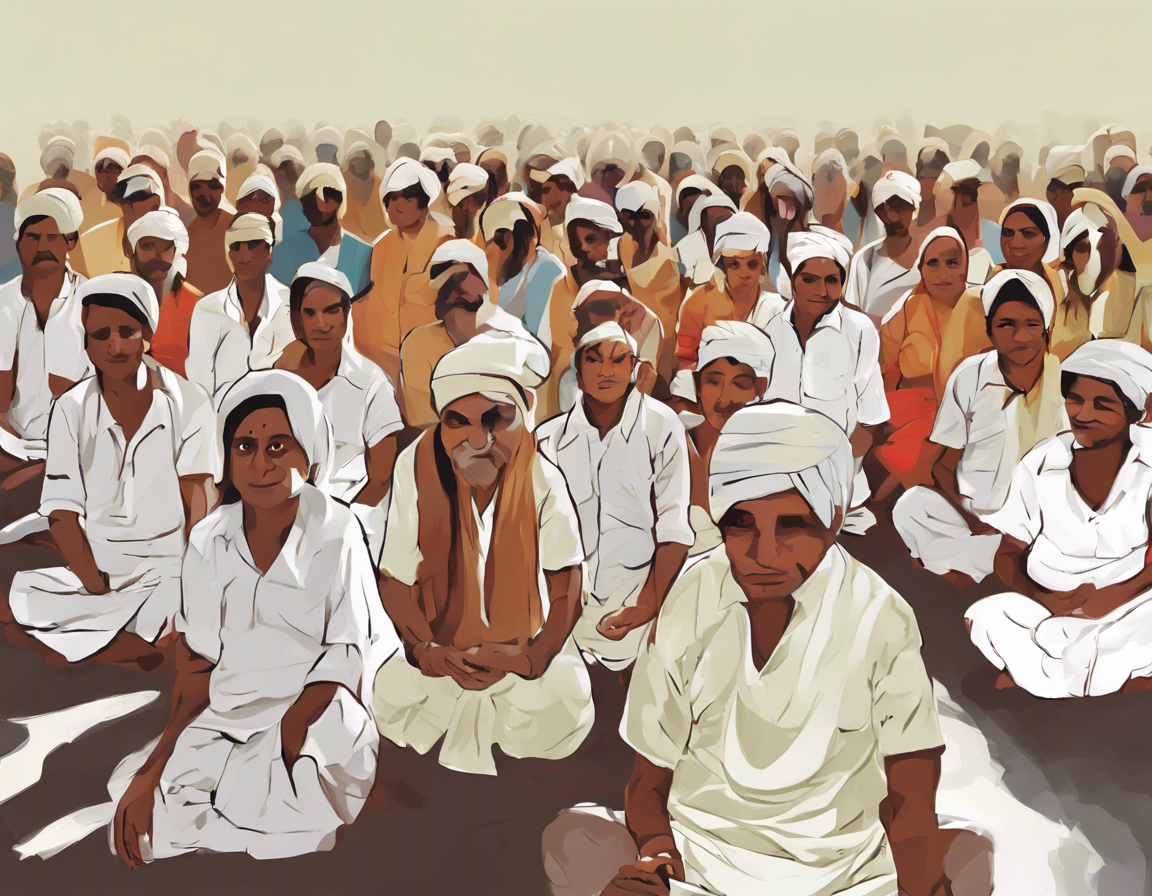Introduction
In recent years, there has been a growing trend across many regions of the world towards community empowerment through the formation of self-help groups. These groups, often created at the grassroots level, are instrumental in addressing social issues, economic disparities, and empowering marginalized populations. One such inspiring example is the Amrit Brikha Andolan Self Help Group, which has gained recognition for its impactful work towards community development and women empowerment. Let us delve deeper into the rise of this self-help group and explore the key factors that have contributed to its success.
The Origins of Amrit Brikha Andolan
The Amrit Brikha Andolan Self Help Group traces its roots back to a small village in rural India, where a group of women leaders came together with a shared vision of socio-economic upliftment. What started as a modest collective effort has now evolved into a formidable force driving positive change in the community.
Key Initiatives and Impact
The success of the Amrit Brikha Andolan Self Help Group can be attributed to its focus on livelihood generation, skill development, and financial inclusion. Through various initiatives such as microfinance, vocational training programs, and entrepreneurship development, the group has been able to empower its members to become self-reliant and confident individuals.
Women Empowerment
A hallmark of the Amrit Brikha Andolan Self Help Group is its unwavering commitment to women empowerment. By providing training workshops, capacity-building programs, and access to resources, the group has enabled women to break free from traditional gender roles and carve out their own identities as leaders and change-makers.
Sustainability and Growth Strategies
To ensure the long-term sustainability of its initiatives, the Amrit Brikha Andolan Self Help Group has adopted various growth strategies. These include partnerships with government agencies, NGOs, and corporate entities, as well as diversification of income sources and continuous evaluation of program outcomes.
Challenges Faced and Overcome
Like any other organization, the Amrit Brikha Andolan Self Help Group has encountered its fair share of challenges along the way. From limited funding to social stigma, the group has navigated obstacles with resilience and strategic planning, emerging stronger and more determined than ever.
The Future of Community Empowerment
As the Amrit Brikha Andolan Self Help Group continues to make strides in community empowerment and sustainable development, it serves as a shining example of what can be achieved through collective action and shared goals. By harnessing the power of community-driven initiatives and inclusive growth, we can pave the way for a more equitable and prosperous future for all.
Frequently Asked Questions (FAQs)
1. What is a self-help group?
A self-help group is a small, informal group of individuals who come together to address common social, economic, or personal issues and support each other through shared experiences and resources.
2. How do self-help groups empower communities?
Self-help groups empower communities by fostering social cohesion, promoting collective decision-making, and providing access to resources and opportunities for individual growth and development.
3. What are some common activities of self-help groups?
Common activities of self-help groups include saving and credit schemes, skill-building workshops, health awareness campaigns, and advocacy for social change.
4. How can individuals get involved in a self-help group?
Individuals can get involved in a self-help group by reaching out to existing groups in their community, expressing interest in participating, and contributing their skills and knowledge to the group’s activities.
5. What are the benefits of joining a self-help group?
Joining a self-help group can provide individuals with emotional support, networking opportunities, skills development, empowerment, and a sense of belonging to a wider community.
6. How can self-help groups sustain their initiatives in the long run?
Self-help groups can sustain their initiatives in the long run by diversifying income sources, building partnerships, conducting regular evaluations, and encouraging member participation and ownership of projects.
7. Are self-help groups only for women?
While many self-help groups focus on women empowerment, self-help groups can be inclusive and welcome members of all genders and backgrounds who share common goals and interests.
8. Can self-help groups operate in urban areas as well?
Yes, self-help groups can operate in urban areas as well, addressing urban poverty, unemployment, and other community challenges through localized and community-driven solutions.
9. How can self-help groups contribute to sustainable development?
Self-help groups can contribute to sustainable development by promoting economic and social empowerment, environmental conservation, gender equality, and inclusive growth within communities.
10. What role do governments play in supporting self-help groups?
Governments can support self-help groups by providing funding, training programs, policy support, and recognition for the important work they do in community development and empowerment.
